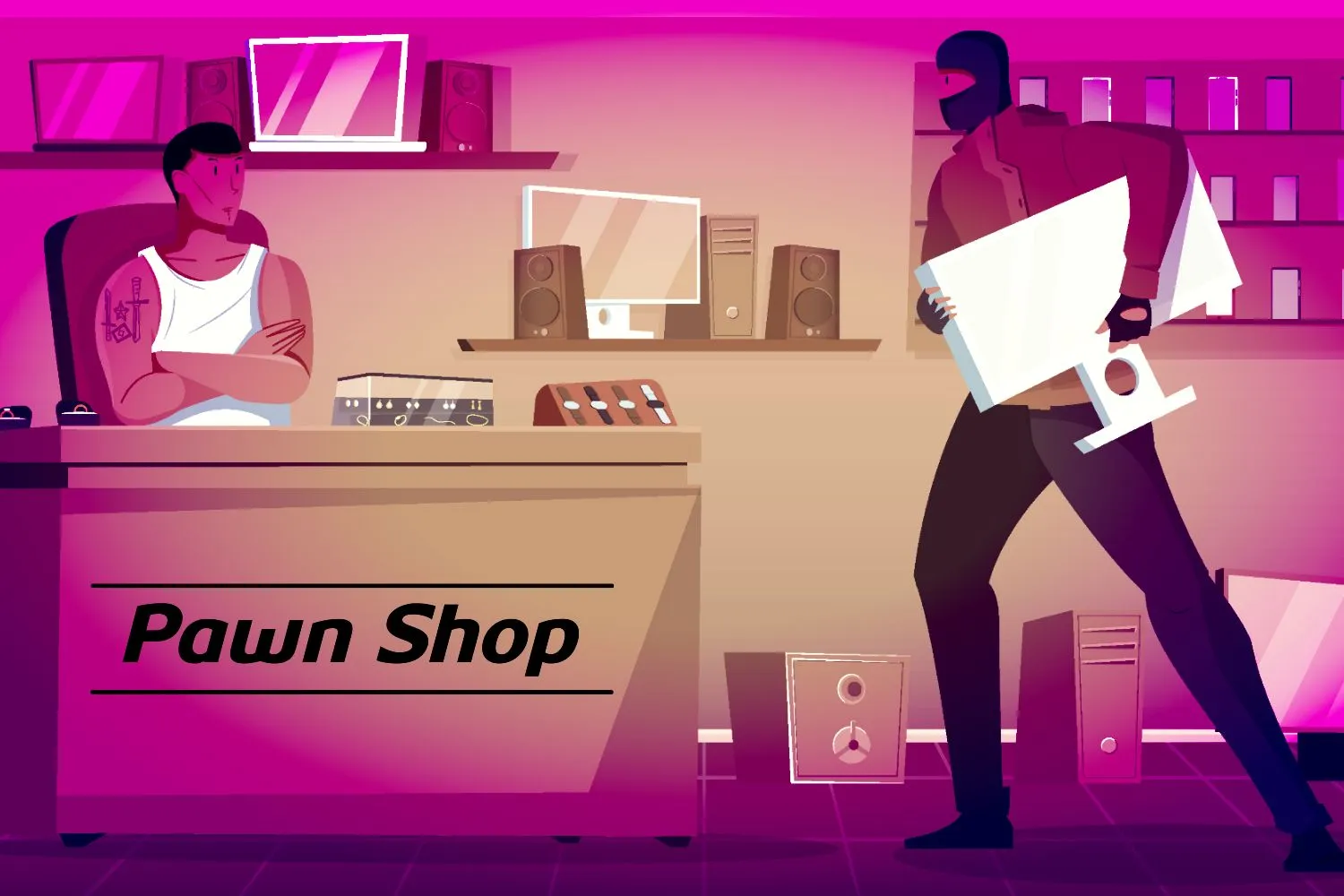Pawn Shop Loans: 7 Reasons To Think Twice
- Money, Personal Finances

Pawn shop loans have been around for centuries, providing people with a quick and easy way to borrow money by putting up collateral. However, just because something has been around for a long time, it doesn’t necessarily mean it’s a good idea. In fact, there are many reasons why you should avoid pawn shop loans if possible. In this article, we’ll explore seven of the most compelling reasons why you should consider other options when you need to borrow money.
High-Interest Rates
Pawn shop loans are notorious for charging high-interest rates, making them an expensive way to borrow money. As mentioned earlier, interest rates on pawn shop loans can be as high as 25% per month. This is significantly higher than interest rates on other types of loans, such as personal loans.
The high-interest rates on pawn shop loans can make it challenging to pay back the loan, especially if you’re already struggling to make ends meet. If you’re unable to repay the loan, the interest charges will continue to accrue, making it more difficult to get out of debt. Additionally, the high-interest rates can make it difficult to save money or build wealth, as a significant portion of your income will go towards paying off the loan.
It’s worth noting that the interest rates on pawn shop loans are often higher than the legal limits set by state usury laws. However, pawn shops are exempt from these laws in many states, allowing them to charge high-interest rates without consequence.
Short Repayment Terms
Another downside of pawn shop loans is that they typically come with short repayment terms. Most pawn shops require borrowers to repay the loan within 30 to 90 days. If you’re unable to repay the loan within this timeframe, the pawn shop can sell your collateral to recoup their losses. This can be particularly problematic if you’ve put up something of sentimental or emotional value, like a family heirloom.
The short repayment terms on pawn shop loans can make them a risky proposition for borrowers who are already struggling to make ends meet. If you’re unable to repay the loan, you’ll lose your collateral, which can be particularly problematic if it’s something of sentimental or emotional value. Additionally, if you’re forced to sell your collateral, you may not be able to get the full value of the item, which means you could lose money in the process.
Another downside of the short repayment terms on pawn shop loans is that they don’t allow for much flexibility. If you’re unable to repay the loan within the repayment period, the pawn shop may not be willing to negotiate a repayment plan or extension. This means that you’ll need to come up with the full amount of the loan, plus interest and fees, within a short amount of time.
Limited Loan Amounts
Pawn shop loans are typically limited to a percentage of the value of your collateral, which means that the amount you can borrow may be lower than what you need. The loan amount is determined by the value of the collateral, with pawn shops typically offering between 25% to 60% of the item’s value.
This means that if you have a valuable item that’s worth $1,000, you may only be able to borrow between $250 to $600, depending on the pawn shop’s policies. This can be problematic if you need to borrow a larger amount of money, as you may need to provide multiple items as collateral or seek out alternative sources of funding.
Limited loan amounts can also be an issue if you need to borrow money quickly. Pawn shops typically require time to appraise the value of the collateral, which can take several hours or days. This means that pawn shop loans may not be the best option if you need money immediately.
If you’re considering a pawn shop loan, it’s essential to make sure that the loan amount will be sufficient for your needs. This means assessing the value of your collateral and determining whether it will provide enough money to meet your financial needs. It’s also a good idea to compare the loan amounts offered by different pawn shops to ensure you’re getting the best deal possible.
Risk Of Losing Your Collateral
One of the most significant risks associated with pawn shop loans is the possibility of losing your collateral. When you take out a pawn shop loan, you’re required to provide an item of value as collateral, such as jewelry, electronics, or musical instruments. If you’re unable to repay the loan on time, the pawn shop has the right to sell your collateral to recoup their losses.
The risk of losing your collateral is especially high if you’re unable to repay the loan and the pawn shop decides to sell your collateral at auction. In this case, you may not receive the full value of your collateral, and you could potentially lose out on money that you could have received if you had sold the item yourself.
Additionally, if you’re emotionally attached to the item you’ve used as collateral, losing it can be a difficult and emotional experience. While some pawn shops may allow you to reclaim your collateral after the loan has been repaid, this is not always the case, and you may end up losing the item permanently.
If you’re considering a pawn shop loan, it’s important to make sure that you’re able to repay the loan on time and that you’re comfortable with the risk of losing your collateral. It’s also a good idea to consider other options for borrowing money that do not require collateral, such as personal loans or credit cards.
Lack Of Consumer Protections
Pawn shop loans are not subject to the same consumer protections as other types of loans, such as personal loans or credit cards. This means that pawn shops are not required to follow the same rules and regulations as traditional lenders, which can leave consumers vulnerable to predatory lending practices.
For example, pawn shops may not be required to disclose the interest rates or fees associated with the loan, making it difficult for consumers to understand the true cost of the loan. Additionally, pawn shops may not be required to provide consumers with a grace period or other repayment options, which can make it challenging for borrowers to repay the loan on time.
Furthermore, if a pawn shop sells your collateral and makes a profit, they may not be required to give you any of the proceeds, even if the sale price exceeds the amount you owe. This means that you could potentially lose out on money that rightfully belongs to you.
Negative Impact On Credit Scores
Pawn shop loans do not typically have an impact on your credit score, which can be a good thing if you’re worried about your credit score being negatively affected by borrowing money. However, this also means that pawn shop loans cannot be used to build or improve your credit score, which can be a drawback if you’re looking to establish credit or improve your credit score.
One potential negative impact of pawn shop loans is that if you’re unable to repay the loan and the pawn shop sells your collateral, this can be reported to collections agencies, which can have a negative impact on your credit score. Additionally, if you have multiple outstanding pawn shop loans, this can make it difficult to qualify for other types of credit, such as personal loans or credit cards, which may require a certain level of creditworthiness.
Limited Availability
Pawn shops are not available in every area, which can make it challenging for borrowers to access these types of loans. In some rural areas or small towns, there may not be any pawn shops available, meaning that borrowers would need to travel to a larger city or town to access these services.
Even in areas where pawn shops are available, they may not be able to provide the type of loan that you need. Pawn shops are typically limited to providing loans based on the value of physical assets, such as jewelry, electronics, or musical instruments. If you need to borrow money for other purposes, such as paying off credit card debt or covering unexpected medical expenses, a pawn shop loan may not be a viable option.
Limited availability can also be an issue if you need to borrow money quickly. Pawn shops typically require time to appraise the value of the collateral, which can take several hours or days. This means that if you need money immediately, a pawn shop loan may not be the best option.
Conclusion
While pawn shop loans may seem like an easy way to borrow money, there are many reasons why you should avoid them if possible. From high-interest rates and short repayment terms to the risk of losing your collateral and limited consumer protections, pawn shop loans can be a risky proposition. If you need to borrow money, it’s always a good idea to explore all of your options and choose the one that’s right for you.
Unsecured Personal Loans Easy and Fast
Get an Installment Loan to cover your Unexpected Expenses.
You can get up to $1,000 as soon as the next business day.







